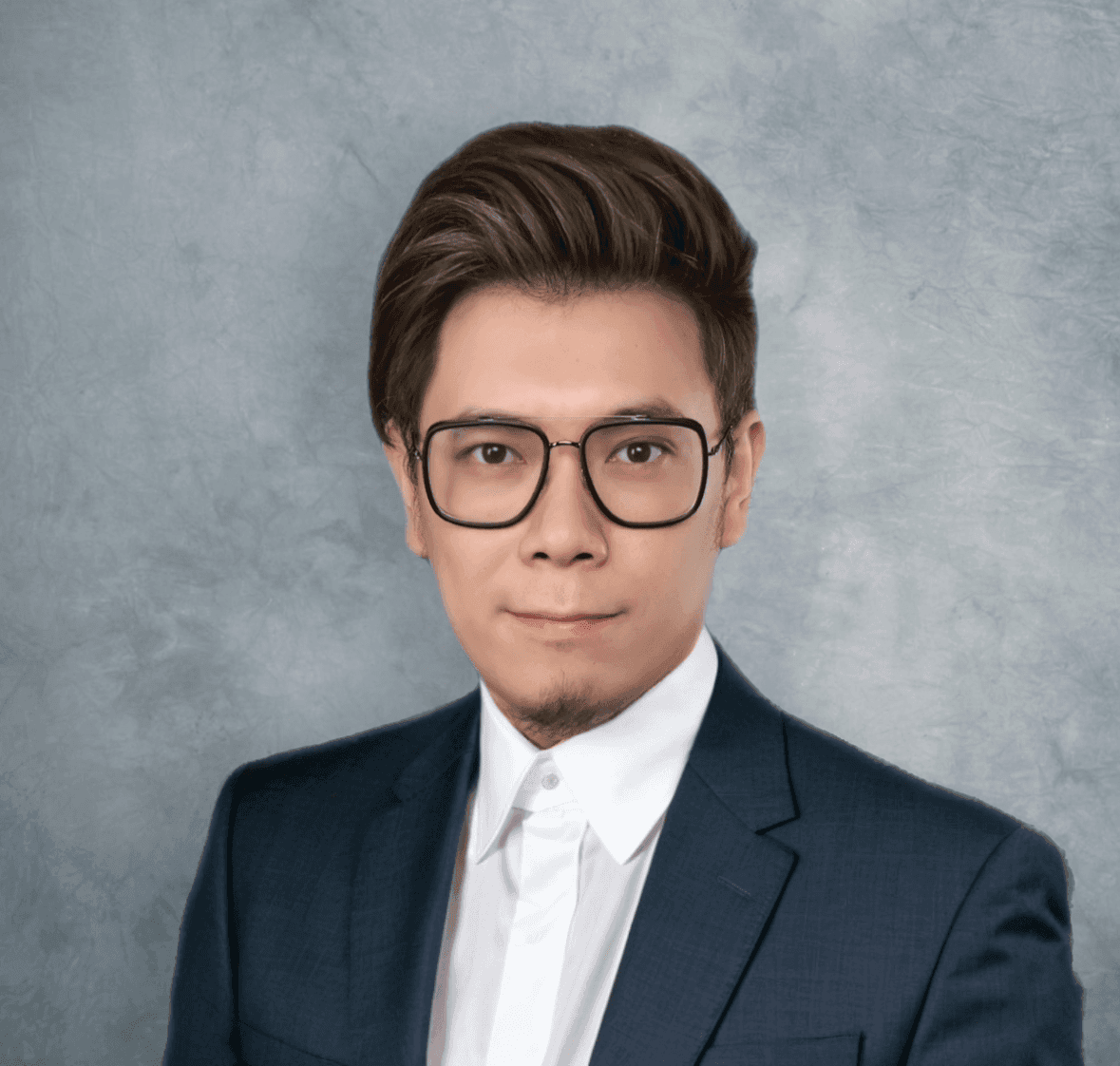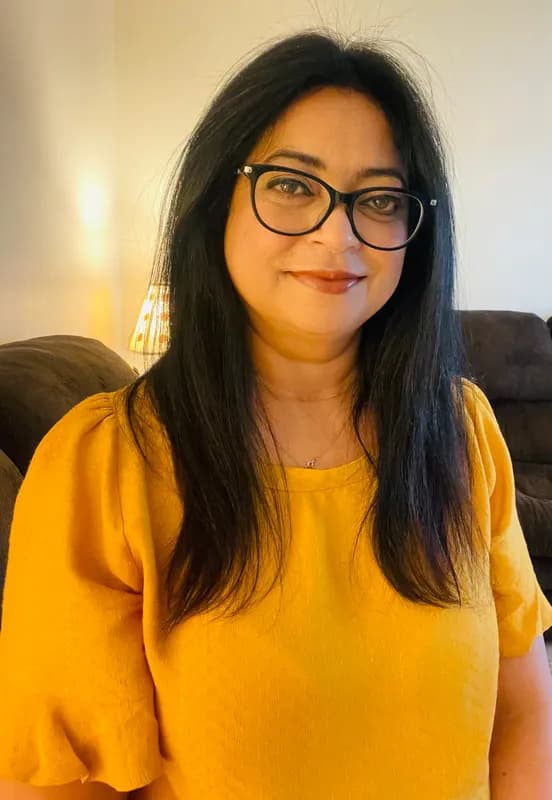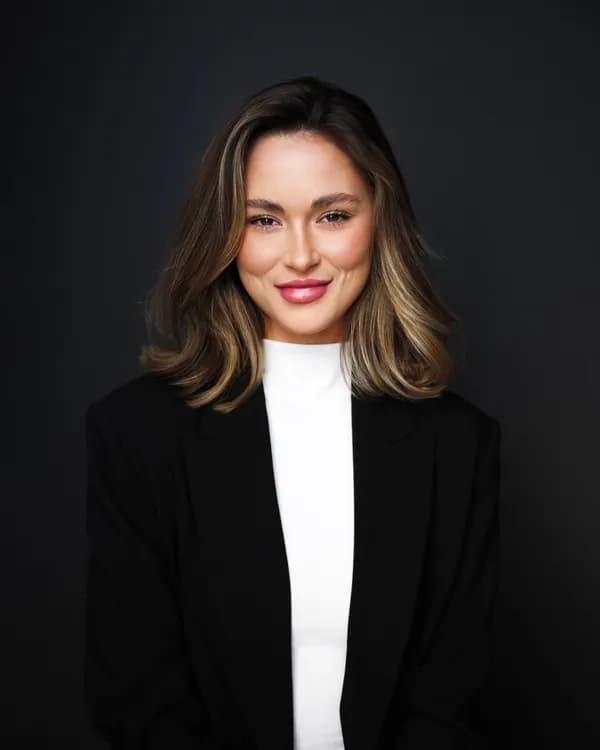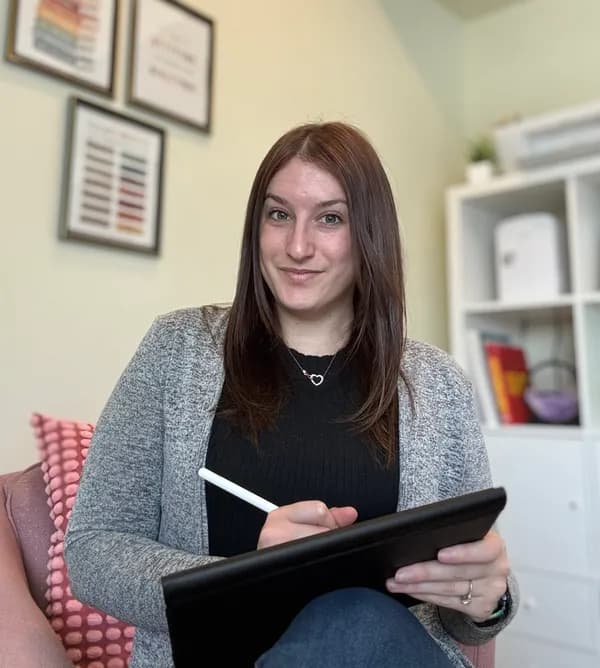Therapy for women's issues

The exhaustion you carry isn’t imagined. The pressure to do everything, the need to prove yourself, the anger you swallow—these come from moving through systems not designed for women. Therapy that honours women’s experiences helps you see how gender, culture, and power shape your life, and gives you space to reclaim your voice, your boundaries, and your sense of self.
What do women’s issues mean?
The experiences shaped by gender
Women’s issues refer to the challenges, expectations, and pressures that women face because of their gender. These include experiences with inequality, safety concerns, cultural expectations, discrimination, reproductive health, and the emotional and physical demands placed on women throughout their lives. These experiences influence how women move through the world and how they are treated in their families, workplaces, and communities.
How identity and culture shape these experiences
Women’s issues differ widely depending on culture, race, sexuality, ability, income level, and life stage. A woman’s sense of safety, opportunity, and belonging is shaped by the intersections of her identities. Understanding women’s issues means recognising how these layers of identity influence the challenges a woman faces and the strengths she brings to her life.
Women's issues in Canada
Sources: Canadian Women's Foundation (The Facts 2024), Women's Shelters Canada, and Statistics Canada.
Issues that bring women to therapy
The weight of societal expectations
Women are often told to be strong yet gentle, ambitious yet agreeable, confident yet never too bold. These mixed messages create pressure to perform roles that rarely align with real life. Many women feel they are always falling short even while carrying enormous responsibilities. The constant work of managing how others perceive you and adjusting yourself to fit expectations can lead to deep exhaustion.
Body image and appearance pressures
From an early age, many women learn that their value is tied to how they look. Weight comments, comparisons, beauty standards, and aging stigma shape how women see their bodies. The pressure to appear youthful, polished, and effortless creates anxiety and self-criticism. For many, worries about appearance take up significant mental space and affect confidence, relationships, and daily life.
Relationship dynamics and emotional labour
Women often carry the invisible emotional workload in families and relationships. Remembering appointments, managing conflicts, anticipating needs, keeping connections alive. This work is essential yet rarely acknowledged. Many women struggle to voice frustration or set boundaries because they have learned to avoid being seen as difficult. Over time, this imbalance can lead to burnout, resentment, or loss of self.
Gender based violence and safety concerns
Many women live with trauma from experiences that were minimized or dismissed. Intimate partner violence, sexual assault, harassment, and constant vigilance about personal safety create ongoing stress. Even without direct violence, living with fear and managing risk in everyday situations affects mental health. These experiences are widespread and real, and the emotional impact is significant.
How therapy addresses women's issues
What makes therapy women centered?
Women centered therapy recognizes that many struggles come from the pressures and expectations placed on women. It looks at how these messages shaped your choices and wellbeing, and invites you to explore them with a therapist who works as a collaborator, not an authority. The goal is to understand your experience in context and support changes that feel empowering and true to you.
Therapeutic approaches for women's issues
Feminist and intersectional therapy
This approach examines how gender expectations, sexism, and overlapping identities like race, sexuality, class, and disability shape your mental health. It helps you understand the messages you absorbed about how women “should” be, notice internalized criticism rooted in sexism, and recognize how multiple forms of oppression can compound stress. The goal is empowerment: seeing that many struggles come from external pressures, not personal flaws.
Trauma-informed feminist therapy
Gender-based violence is widespread, making trauma-informed work essential. This combines evidence-based trauma therapies with an understanding of how power, social conditioning, and victim-blaming shape your healing. It helps you process traumatic experiences safely while rejecting the shame and expectations that were never yours to hold.
Narrative and relational approaches
Narrative therapy helps you examine and rewrite the stories shaped by cultural messages about women—stories about being selfless, agreeable, or flawless. Relational-cultural therapy centres connection and explores where you feel unseen or disconnected. Together, these approaches help you reclaim your voice and build relationships that support authenticity rather than self-sacrifice.
Integrative, women-centred care
Many therapists blend feminist principles with CBT, ACT, mindfulness, or other techniques. This allows you to challenge internalized beliefs, set boundaries, understand your values, and reconnect with your needs. The work is tailored to your lived experience, always considering how gender and social context shape your wellbeing.
What to expect from therapy for women's issues
Consciousness-raising and validation
Early work focuses on seeing your experiences with clarity. You explore the messages you absorbed about being a woman and how social expectations have shaped your stress, self-doubt, or fear. This reframes struggles you may have blamed yourself for, helping you recognize that many reactions are reasonable responses to real pressures, not personal shortcomings.
Understanding gender roles and power
You look at how gender expectations influenced your behaviour, boundaries, ambition, and relationships. This helps you separate what you truly want from what you were conditioned to accept, and reveals patterns, such as why certain situations trigger you, why you feel small in specific spaces, or why emotional labour keeps falling on you.
Building skills and reclaiming agency
Insight is paired with action. You learn assertiveness, boundary-setting, challenging internalized beliefs, reconnecting with your body, expressing anger safely, and reshaping relationship dynamics. The goal is developing tools that support confidence, clarity, and self-respect.
Empowerment and real-world change
Growth often extends beyond the therapy room. This might mean speaking up at work, setting new standards in relationships, or simply refusing patterns you once tolerated. Empowerment is practical: honouring your values, making aligned choices, and navigating real-world constraints with more confidence and agency.
Find a therapist who understands women's issues
Choosing the right therapist matters. Each province in Canada has its own regulations, which is why working with a recognized professional can make a real difference in your care. Stellocare takes the uncertainty out of the process by listing only verified therapists you can trust.
The right therapist for you
No therapists found with these specialties in Ontario.
Try selecting a different province.Supporting yourself beyond therapy
Canadian women's services & advocacy
Legal Rights & Justice
Women's Legal Education and Action Fund (LEAF)
A national non-profit that fights for gender equality in the courts. While they focus on systemic law reform, their website provides legal education resources on reproductive rights, workplace discrimination, and sexual violence laws.
Indigenous Women's Support
Native Women's Association of Canada (NWAC)
A National Indigenous Organization representing the political, social, and economic well-being of Indigenous women, girls, and gender-diverse people. They offer skills training (ISET), health promotion, and advocacy for Missing and Murdered Indigenous Women and Girls (MMIWG).
Leadership & Political Representation
Equal Voice Canada
A multi-partisan non-profit dedicated to electing more women to all levels of government. They run "Campaign Schools" and mentorship programs to help women navigate the political system and run for office.
Developing critical consciousness
Questioning what you have been taught
Start noticing the messages about women that appear in media, conversations, workplaces, and daily interactions. Ask yourself who benefits when women feel inadequate or responsible for everyone’s needs. Developing this awareness helps you understand where these pressures come from so you can make choices that reflect your own values.
Finding your authentic anger
Many women learn to hide anger to stay pleasant and agreeable, even when they are treated unfairly. Anger is valuable information that shows when a boundary has been crossed or something matters deeply. Allowing yourself to feel and express anger with clarity and respect can be grounding and liberating.
Building women’s community
Isolation makes challenges feel heavier. Seek spaces where women speak honestly about their experiences, whether in person or online. Shared stories reveal patterns, reduce shame, and create support that makes difficult situations easier to navigate. Community reminds you that your experiences are real and shared by many others.
Reclaiming your body
Your body belongs to you, not to others’ expectations or judgments. Notice when you are viewing yourself from the outside rather than feeling your body from within. Choose activities that help you feel present and alive. Question where your appearance standards come from and who they serve. Your body deserves care and respect at every stage of life.
Questions about therapy for women's issues
Is feminist therapy anti men?
No. Feminist therapy is against harmful power systems, not men. It explores how gender expectations affect everyone and creates space for women whose experiences have often been dismissed. Many men benefit from this work too when unpacking the pressure of traditional masculinity.
Do I need to identify as a feminist?
No. You do not need any label to benefit. What matters is whether exploring how gender and power shape your life feels helpful. A good therapist adapts the approach to your comfort and your values.
What if my concerns do not feel gender related?
Many personal struggles have hidden gender influences, such as pressure at work, imbalance in relationships, or expectations around emotional labour. Exploring these patterns can offer clarity, but your therapist will never force a framework that does not fit your experience.
Can men be feminist therapists?
Yes. Some women prefer women therapists, and that preference is valid. What matters most is whether the therapist understands gender dynamics, listens without defensiveness, and creates a supportive environment. Trust your instincts when choosing.
How does this approach include intersectionality?
Effective feminist therapy recognizes that gender is only one part of identity. Race, culture, sexuality, disability, and income all shape your experience. A good therapist stays aware of these layers and follows your lived experience as the guide.
Will this therapy make me angry all the time?
You might notice more anger at first as you name injustices you once blamed yourself for. This is part of healing. Over time the goal is clarity and empowerment, not constant anger. You learn to use your feelings as information rather than carrying them alone.
Related concerns
References
- Statistics Canada. (2024). Mental health among women and girls of diverse backgrounds in Canada before and during the COVID-19 pandemic: An intersectional analysis. Health Reports. Retrieved from https://www150.statcan.gc.ca/n1/daily-quotidien/240717/dq240717c-eng.htm
- Canadian Women's Foundation. (2025). Gender Based Violence in Canada: Learn the Facts. Retrieved from https://canadianwomen.org/the-facts/gender-based-violence/
- Government of Canada: Women and Gender Equality Canada. (2024). Facts, stats and WAGE's impact: Gender-based violence. Retrieved from https://www.canada.ca/en/women-gender-equality/gender-based-violence/facts-stats.html
- Statistics Canada. (2019). Gender-based violence and unwanted sexual behaviour in Canada, 2018: Initial findings from the Survey of Safety in Public and Private Spaces. Juristat. Retrieved from https://www150.statcan.gc.ca/n1/daily-quotidien/191205/dq191205b-eng.htm
- Government of Canada: Women and Gender Equality Canada. (2024). Fact sheet: Intimate partner violence. Retrieved from https://www.canada.ca/en/women-gender-equality/gender-based-violence/intimate-partner-violence.html
- Evans, K. M., Kincade, E. A., Marbley, A. F., & Seem, S. R. (2005). Feminism and feminist therapy: Lessons from the past and hopes for the future. Journal of Counseling & Development, 83(3), 269-277.
- Enns, C. Z., & Williams, E. N. (2016). The Oxford Handbook of Feminist Multicultural Counseling Psychology. Oxford University Press.
- Morrow, S. L., & Hawxhurst, D. M. (1998). Feminist therapy: Integrating political analysis in counseling and psychotherapy. Women & Therapy, 21(2), 37-50.
About Stellocare
Stellocare is a Canadian platform where you can find the best fit therapist for you. Search the right thperaists now by asking our AI, browsing our list, or finding our social workers for personal referral.

Shahed Tawfeeq
Registered Psychotherapist (Qualifying) (ON)

Robyn Floyd
Registered Psychotherapist (ON)

Rex Cheung
Registered Social Worker (ON)

Ekta Sehgal
Registered Psychotherapist (ON)

Stacy Kirkbride
Registered Psychotherapist (ON)

Judith Klapak
Counselling Therapist (AB)

Shiny Yang
Occupational Therapist (ON)

Kimia Taghavi
Registered Psychotherapist (Qualifying) (ON)

Claudia Dargis
Registered Psychotherapist (ON)

Liv Noël Dakkak
Registered Social Worker (ON)

Yuansheng Lu
Registered Psychotherapist (Qualifying) (ON)

Katelyn Beveridge
Registered Psychotherapist (Qualifying) (ON)

Gauri Mathur
Registered Psychotherapist (ON)

Rania Hannawayya
Canadian Certified Counsellor

Paige Abbott
Registered Psychologist (AB)

Yamila Luner
Canadian Certified Counsellor

Melodi Laframboise
Registered Psychotherapist (ON)

Carol Ma
Registered Social Worker (ON)

Victoria Jacobs
Registered Psychotherapist (ON)

Jessica Sykes
Registered Psychotherapist (Qualifying) (ON)

Shahed Tawfeeq
Registered Psychotherapist (Qualifying) (ON)

Robyn Floyd
Registered Psychotherapist (ON)

Rex Cheung
Registered Social Worker (ON)

Ekta Sehgal
Registered Psychotherapist (ON)

Stacy Kirkbride
Registered Psychotherapist (ON)

Judith Klapak
Counselling Therapist (AB)

Shiny Yang
Occupational Therapist (ON)

Kimia Taghavi
Registered Psychotherapist (Qualifying) (ON)

Claudia Dargis
Registered Psychotherapist (ON)

Liv Noël Dakkak
Registered Social Worker (ON)

Yuansheng Lu
Registered Psychotherapist (Qualifying) (ON)

Katelyn Beveridge
Registered Psychotherapist (Qualifying) (ON)

Gauri Mathur
Registered Psychotherapist (ON)

Rania Hannawayya
Canadian Certified Counsellor

Paige Abbott
Registered Psychologist (AB)

Yamila Luner
Canadian Certified Counsellor

Melodi Laframboise
Registered Psychotherapist (ON)

Carol Ma
Registered Social Worker (ON)

Victoria Jacobs
Registered Psychotherapist (ON)

Jessica Sykes
Registered Psychotherapist (Qualifying) (ON)

